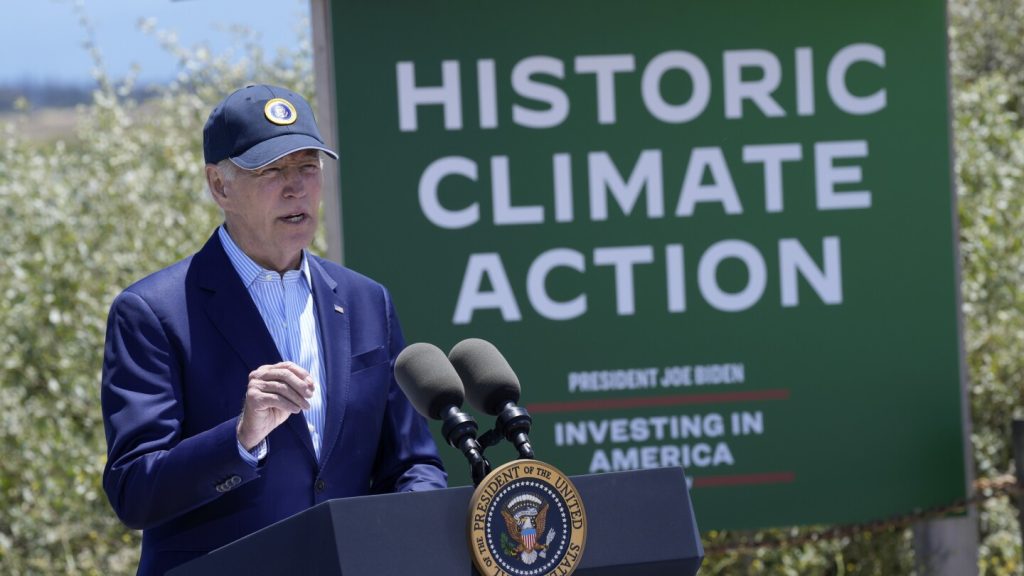President Joe Biden has been on a mission to secure his legacy through a flurry of election-year rules in various areas, including the environment. One of the most significant regulations proposed is aimed at forcing coal-fired power plants to capture emissions or shut down, in an effort to reduce greenhouse gas emissions that contribute to climate change. Biden aims to cut carbon emissions by half by 2030 and has finalized over 60 regulations to meet this goal, with a focus on the power sector as the second-largest contributor to climate change in the United States.
These regulations cover a wide range of issues beyond the environment, including student loan forgiveness, affordable housing, overtime pay, healthcare, and compensation for airline passengers. Records show that federal agencies have published 66 significant final rules in April alone, with more than half expected to have an economic impact of at least $200 million. President Biden and his administration are actively promoting these rules, with Cabinet officials being dispatched across the country, particularly to swing states, to highlight the administration’s actions ahead of the upcoming election.
One of the challenges with rulemaking is that policies created through this process can be easily reversed when a new administration takes office, especially in a polarized political environment. The Congressional Review Act allows lawmakers to void new rules within a specific timeline. Biden believes that the actions taken so far will be shielded from review in the next Congress, but if Republicans take over Congress and the White House, many of these regulations could be at risk of being reversed.
In addition to the power plant rule, the Environmental Protection Agency (EPA) has issued regulations targeting emissions from cars and trucks, methane emissions from oil and gas drilling, and other environmental concerns. These actions have been met with criticism from industry groups and Republicans, who view them as governmental overreach. However, Biden and his administration are focusing on addressing long-standing environmental issues and protecting public health, particularly in communities that are disproportionately affected by pollution.
While the executive branch actions are likely to face legal challenges from industry and Republican-led states, experts believe that the climate law and the bipartisan infrastructure law passed in 2021 will provide more enduring solutions to address climate change. These laws, combined with executive actions, are expected to put the country on a path to achieving net-zero carbon emissions by 2050. Despite potential challenges in Congress and the courts, President Biden remains committed to his goal of protecting the environment and public health through targeted regulatory actions and legislation.
Overall, the Biden administration’s focus on climate change and other pressing issues through rulemaking and legislation has raised concerns about the longevity of these policies in the face of political shifts and legal challenges. While the administration is making strides in addressing environmental and economic issues, the ultimate staying power of these regulations remains uncertain, particularly with a divided Congress and potential changes in leadership. In the meantime, Biden continues to push forward with his agenda to secure his legacy and protect the environment for future generations.


